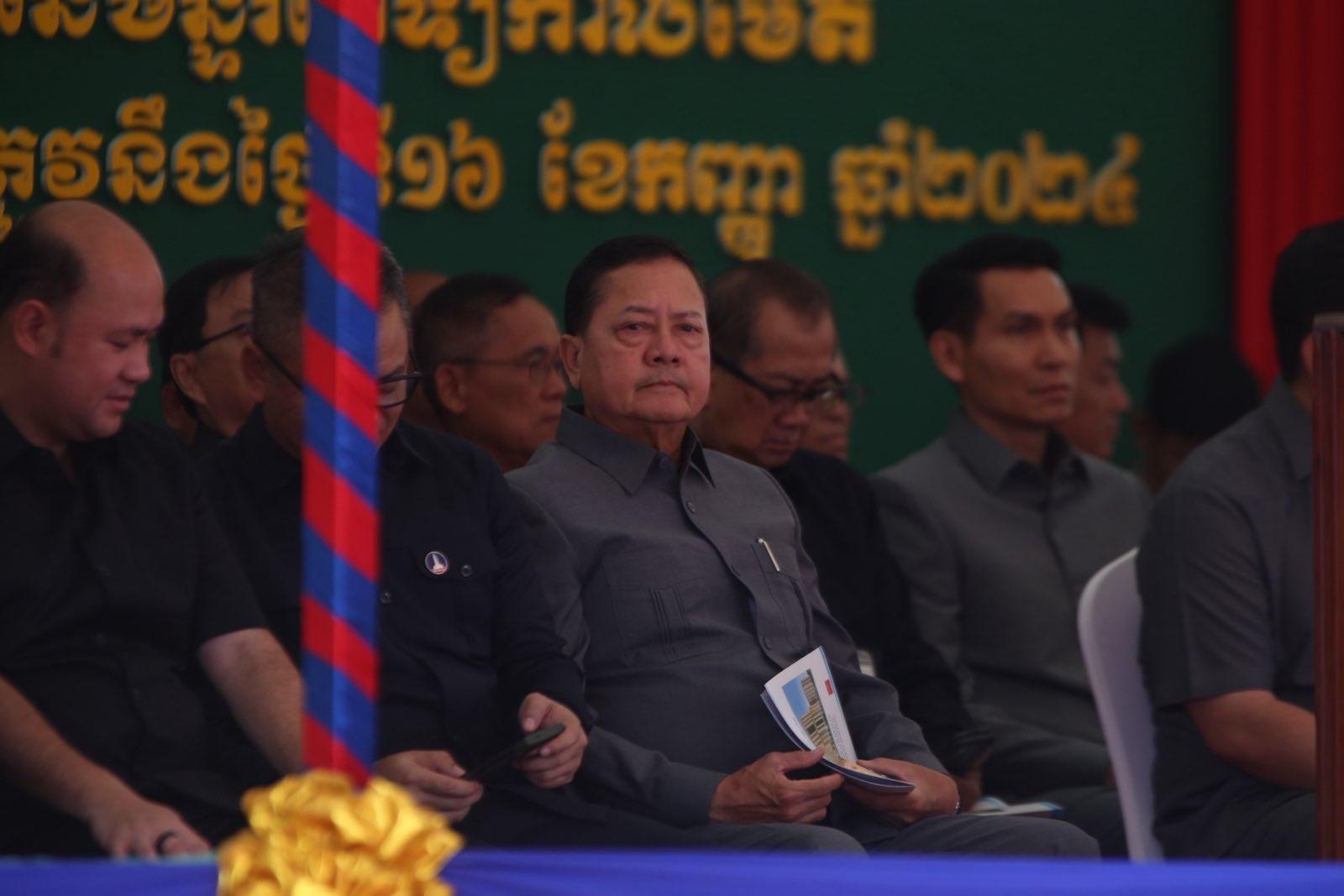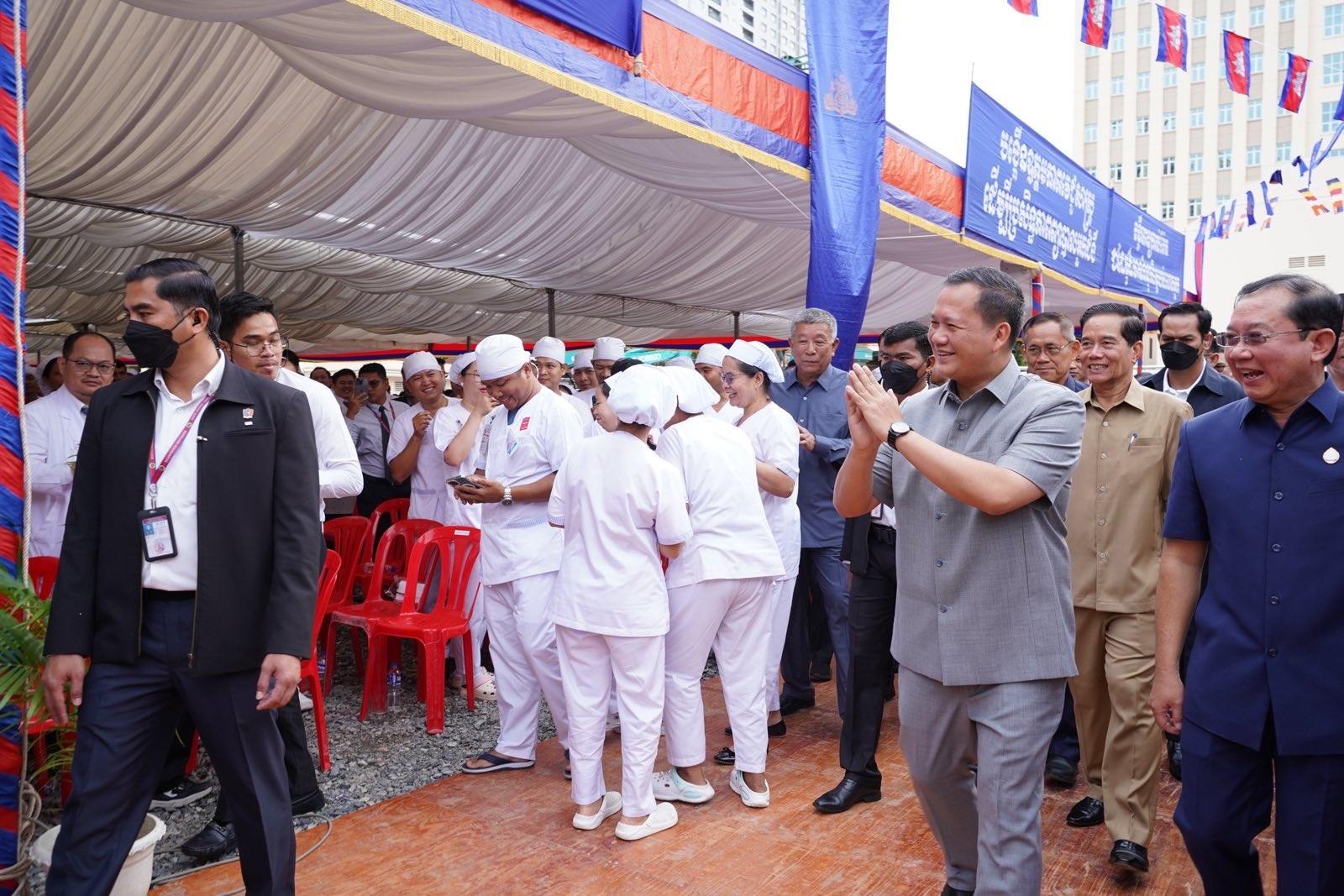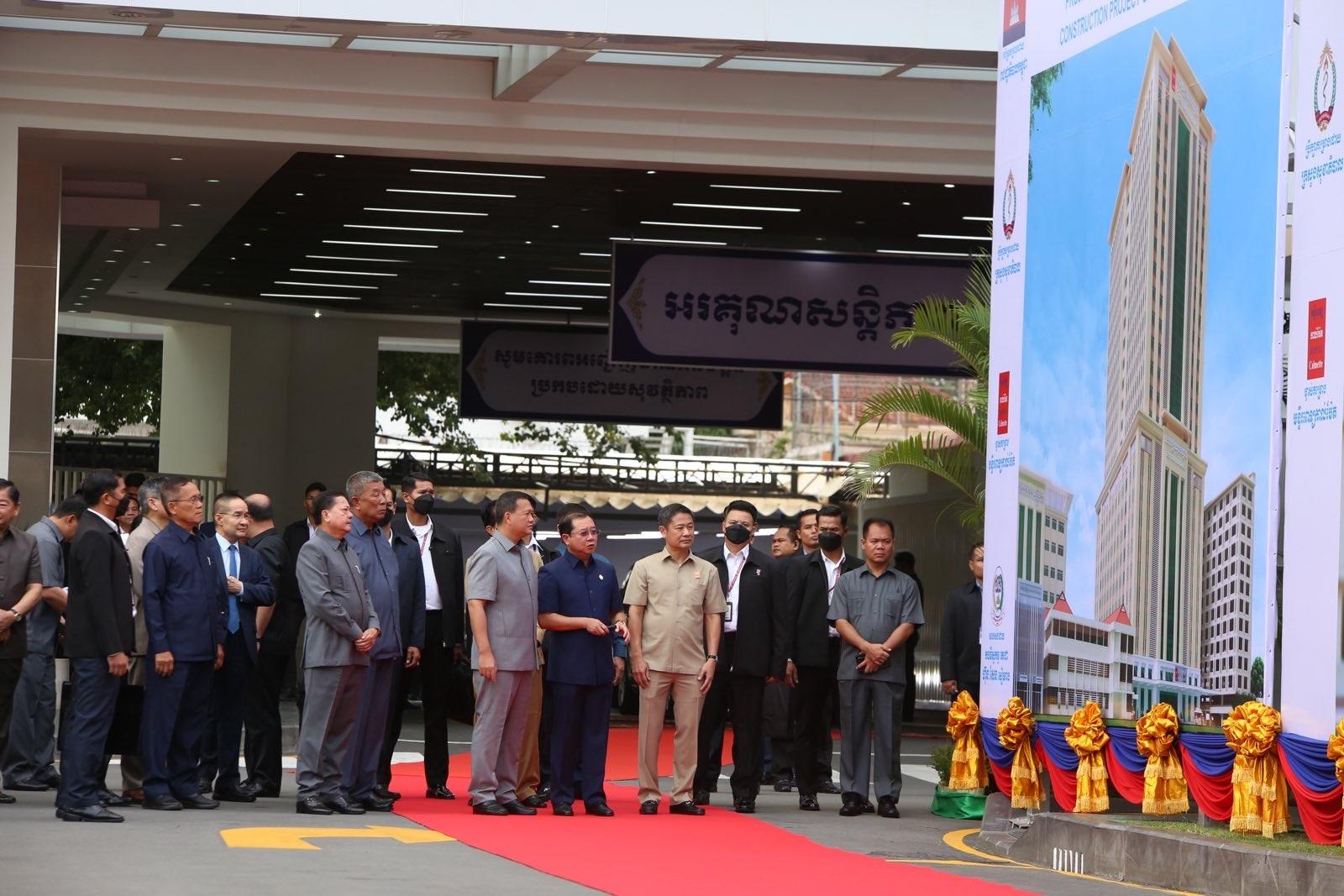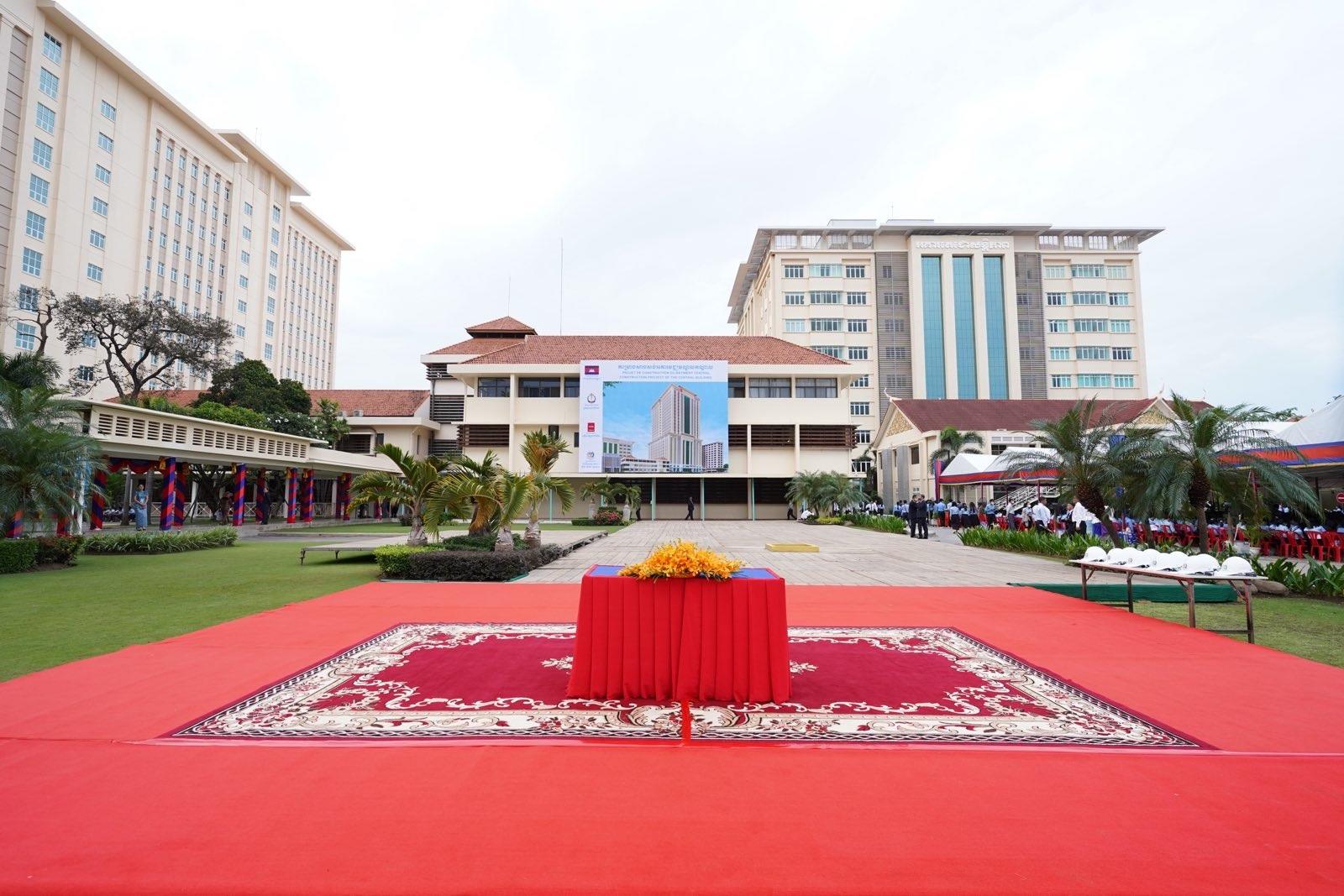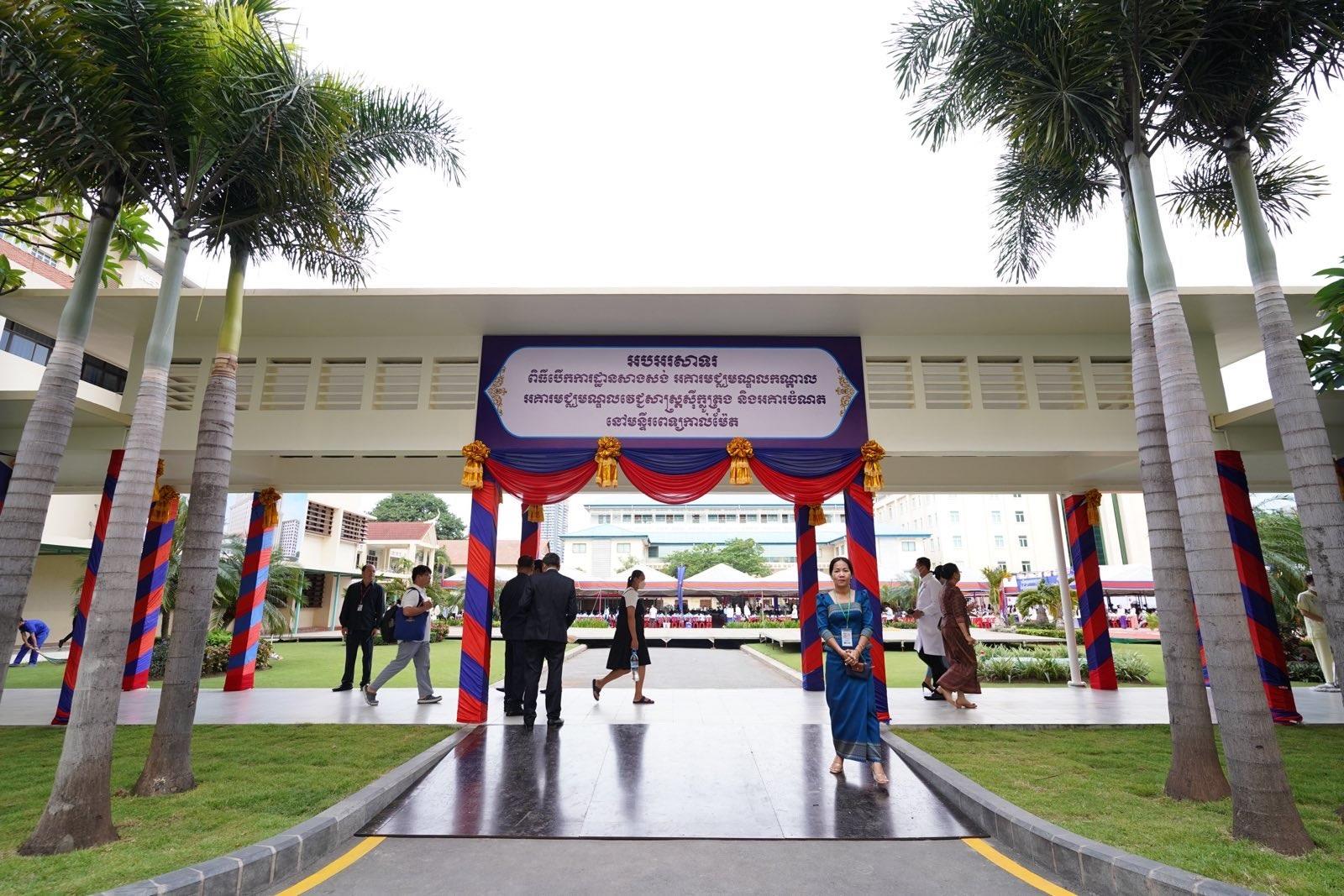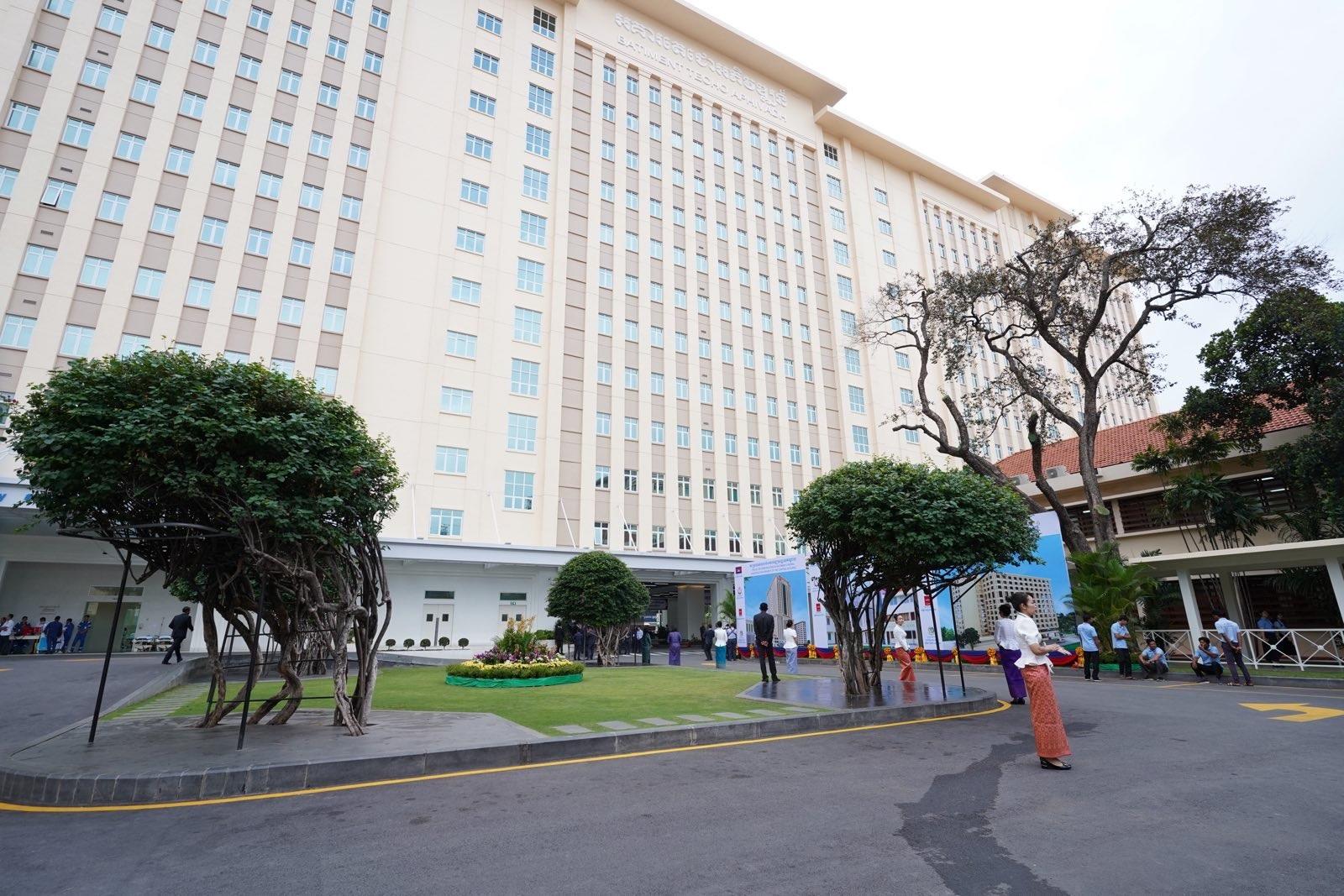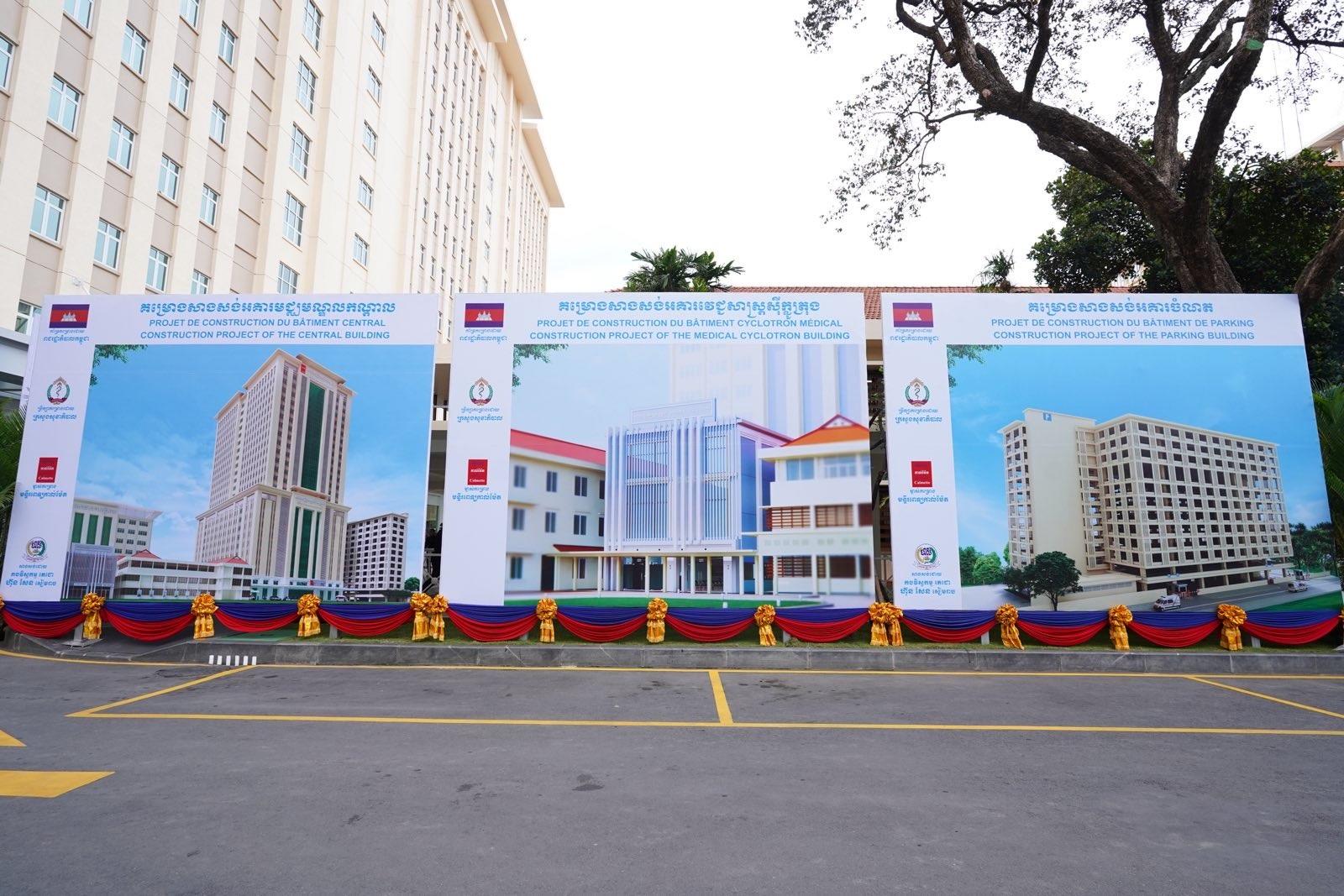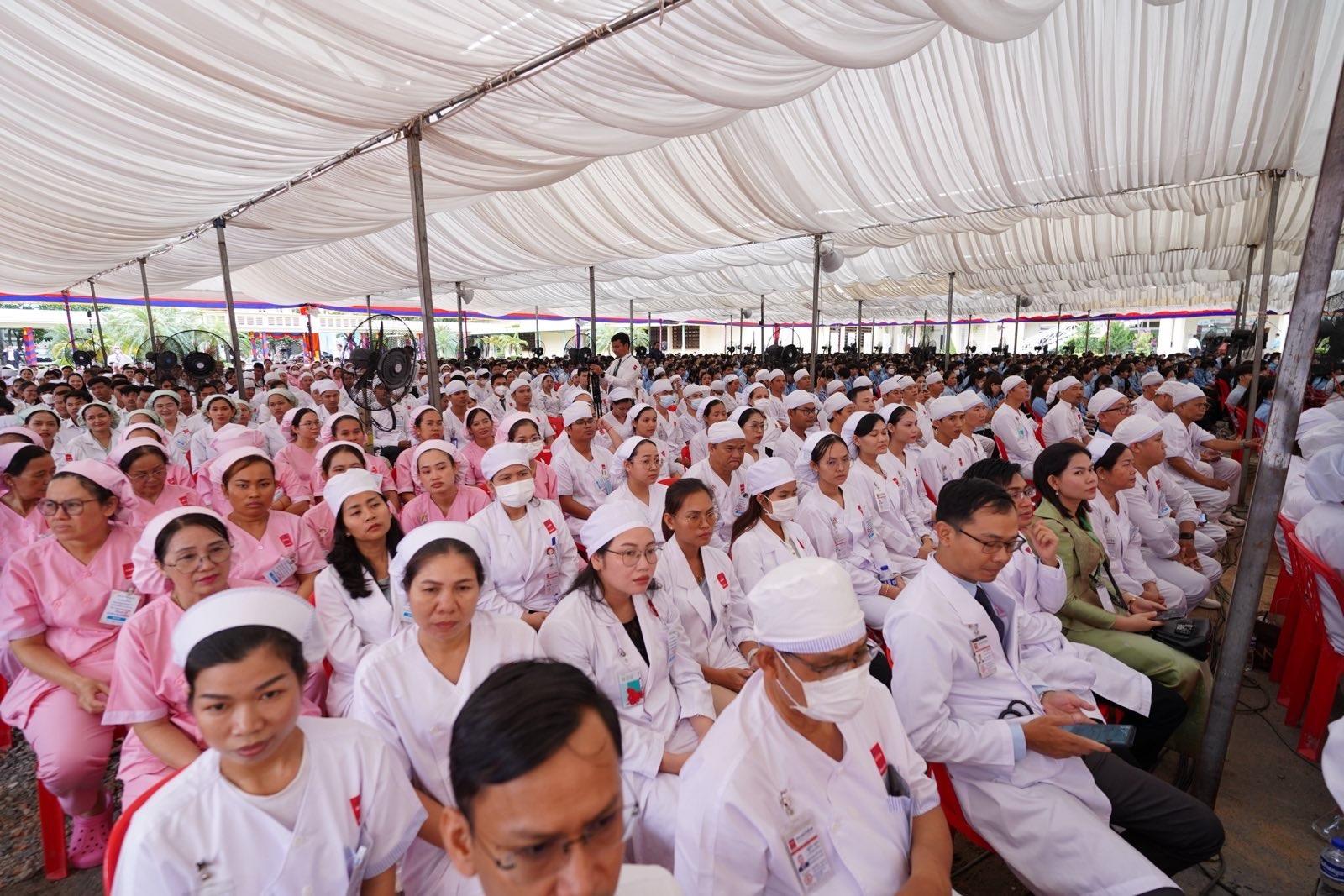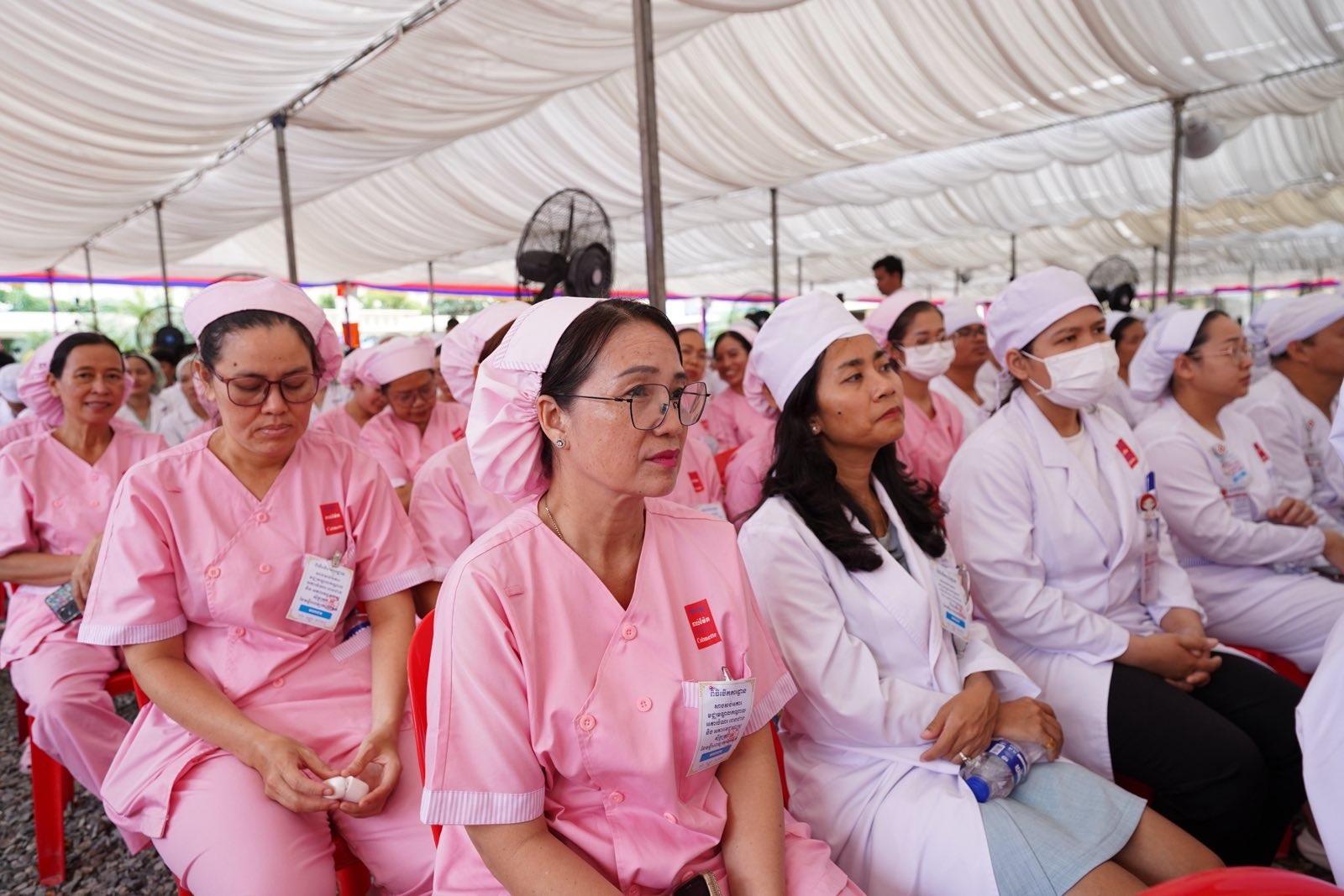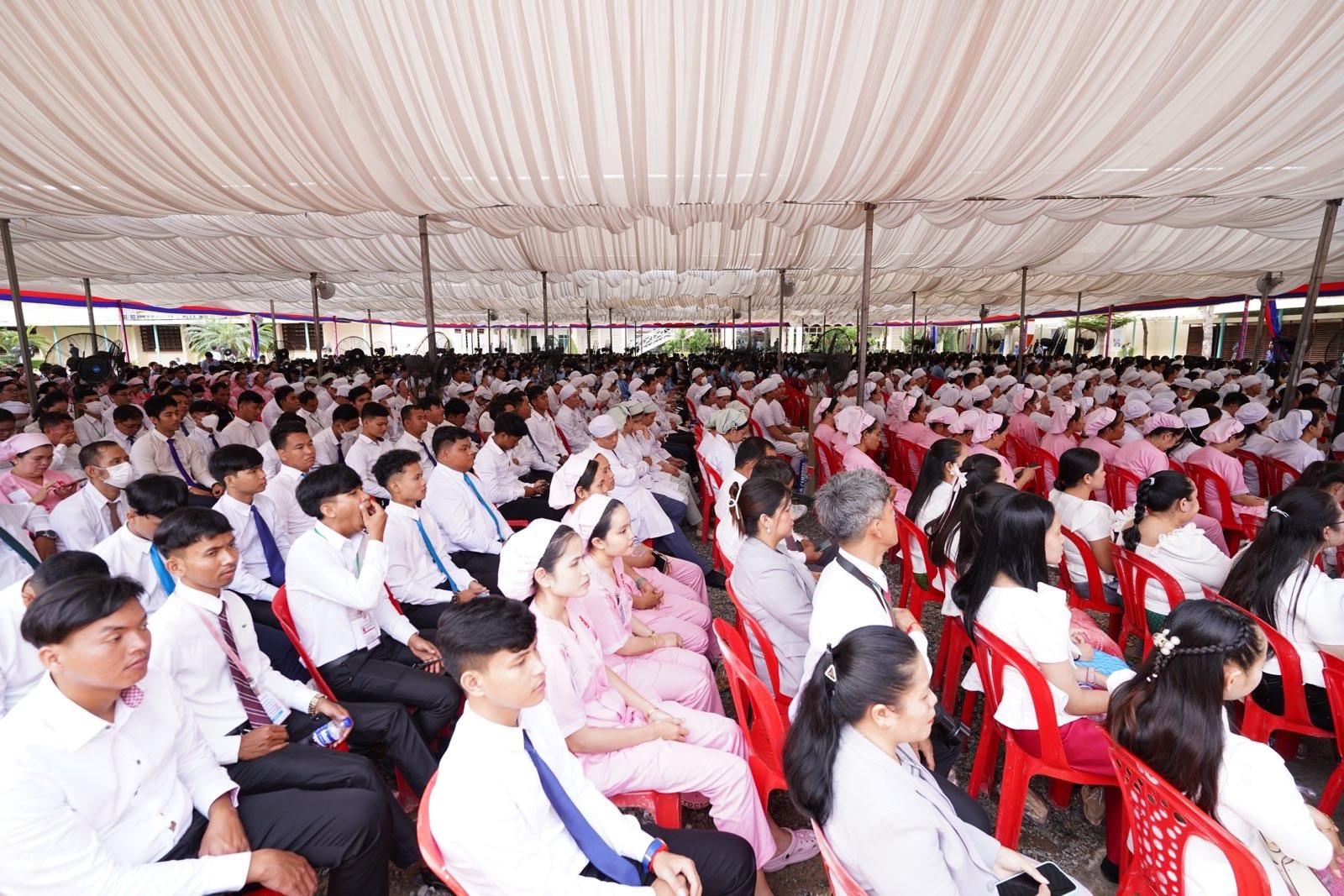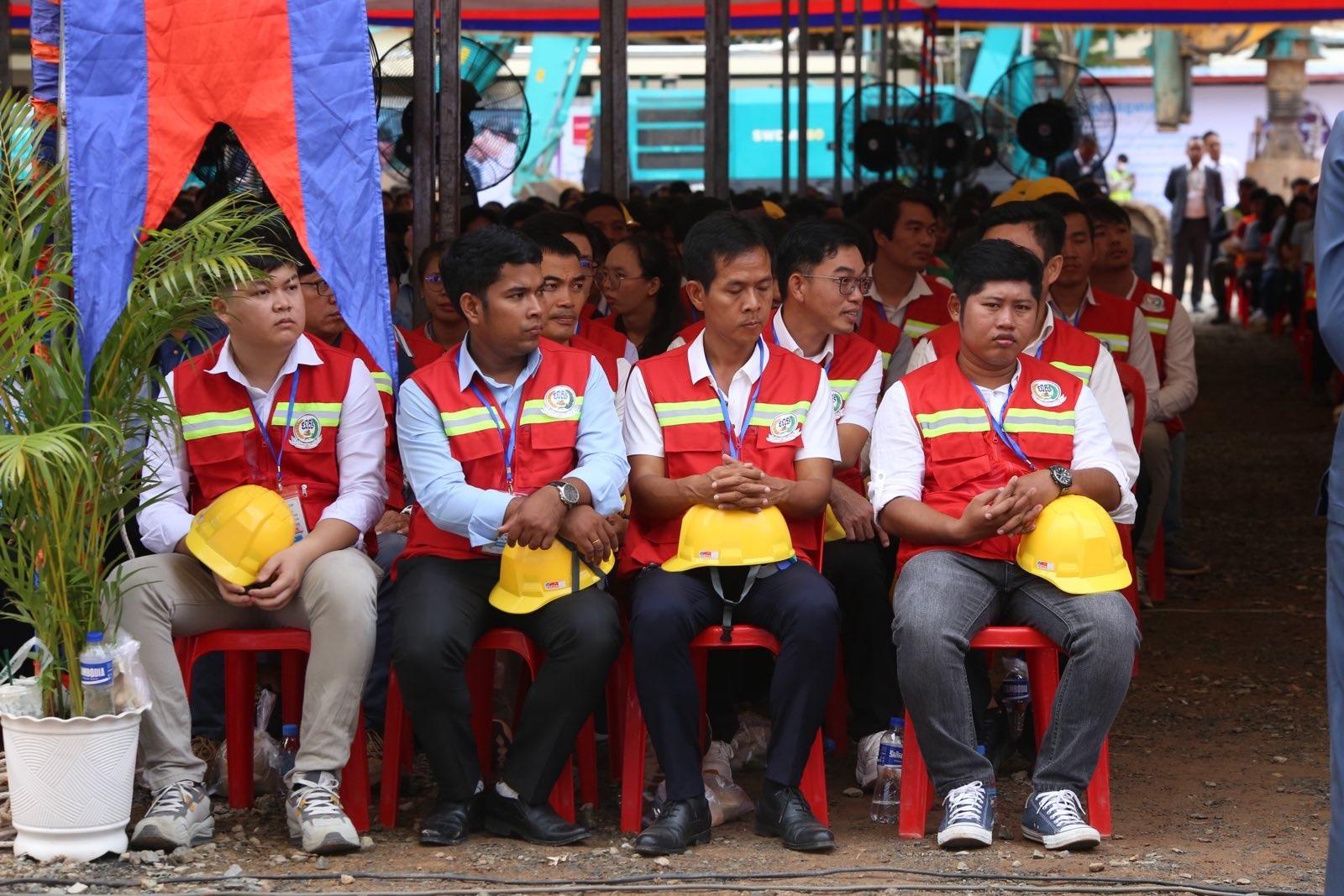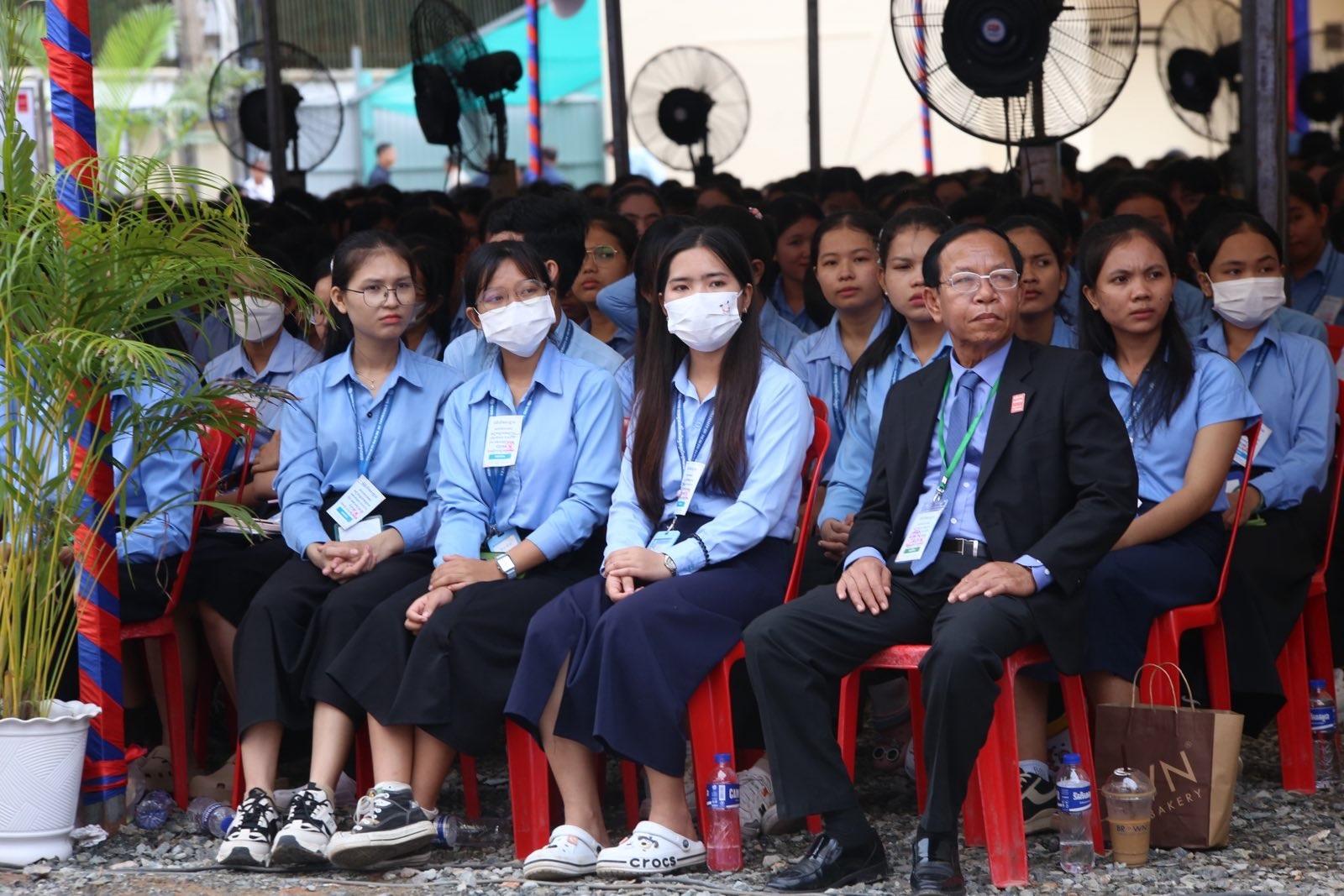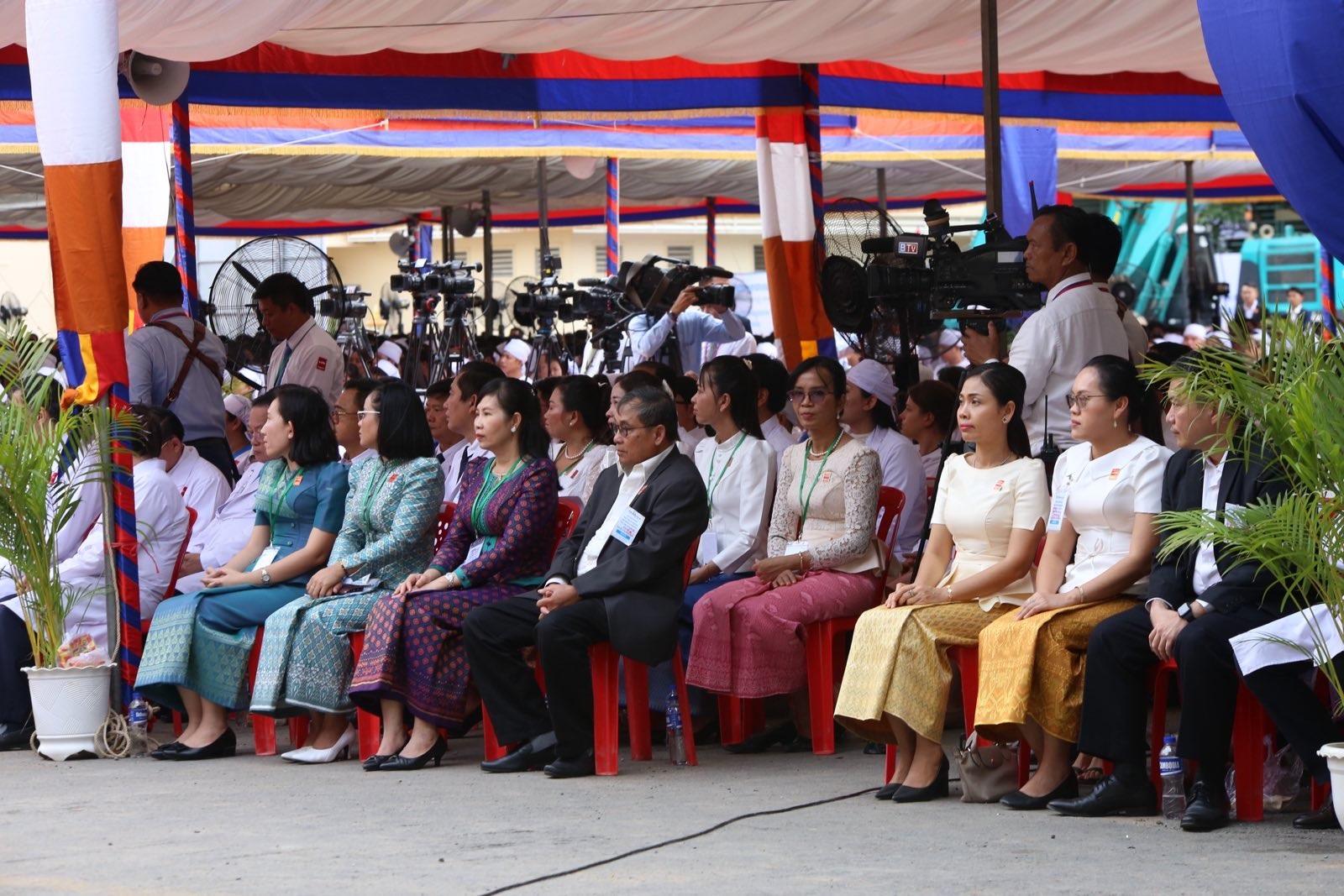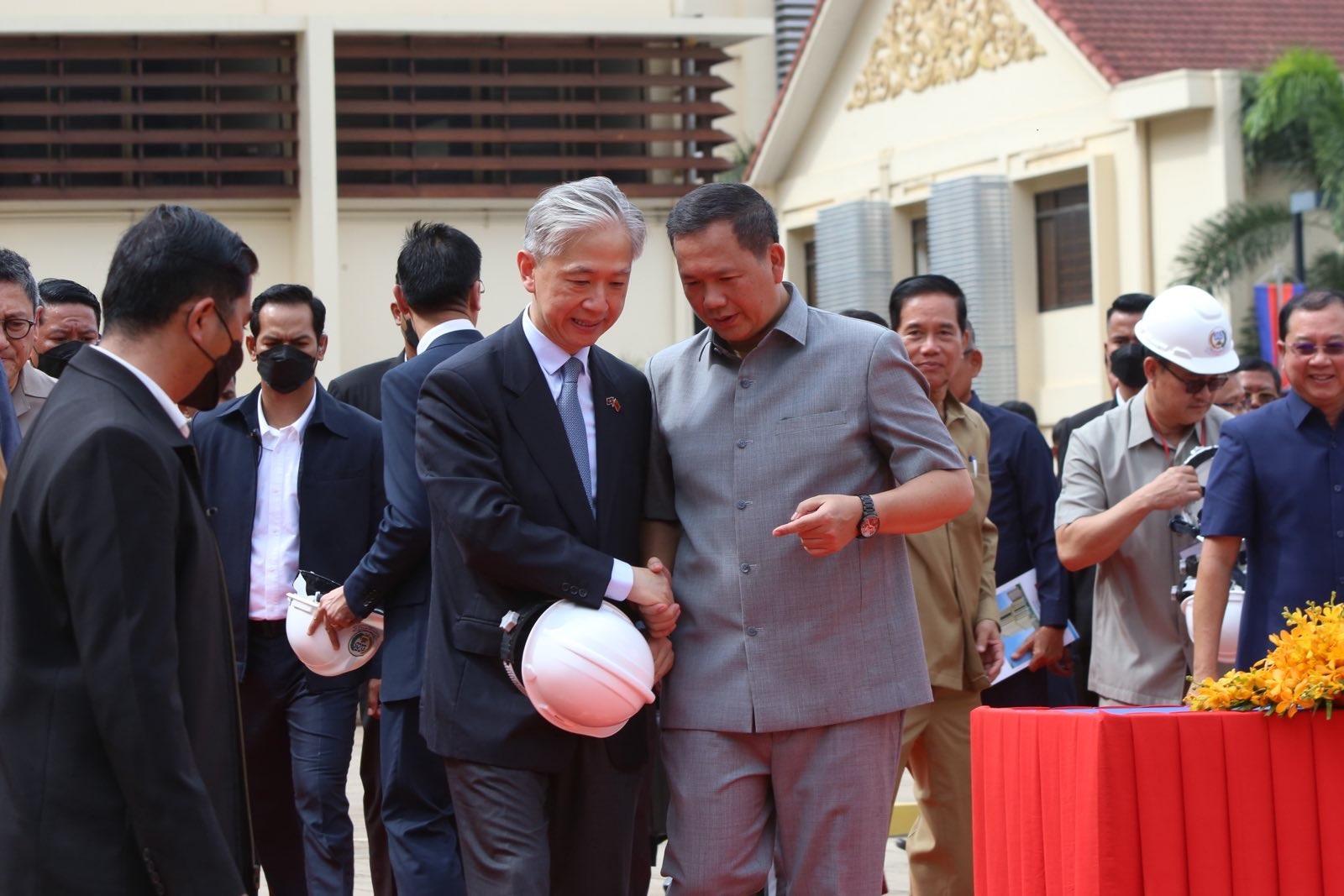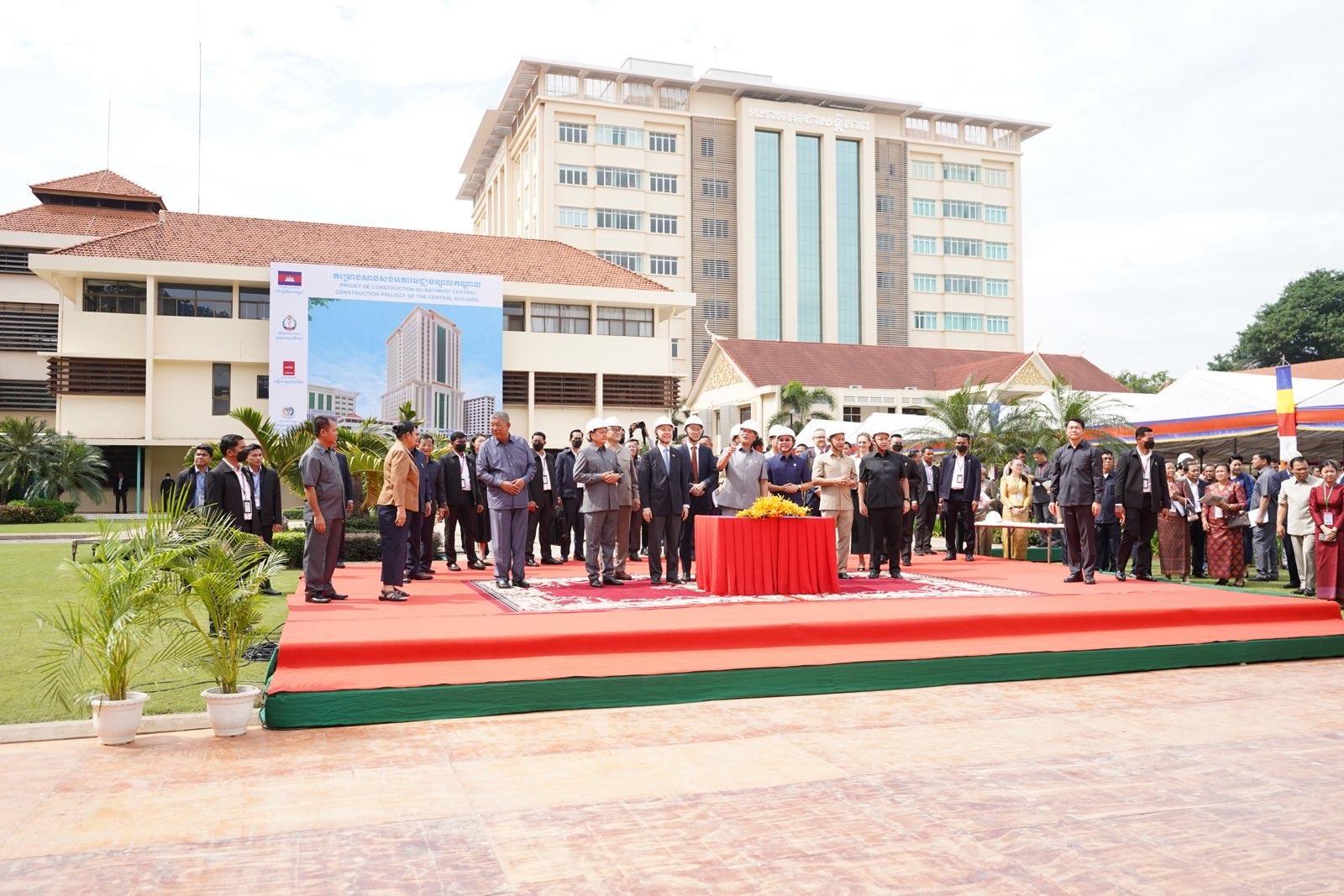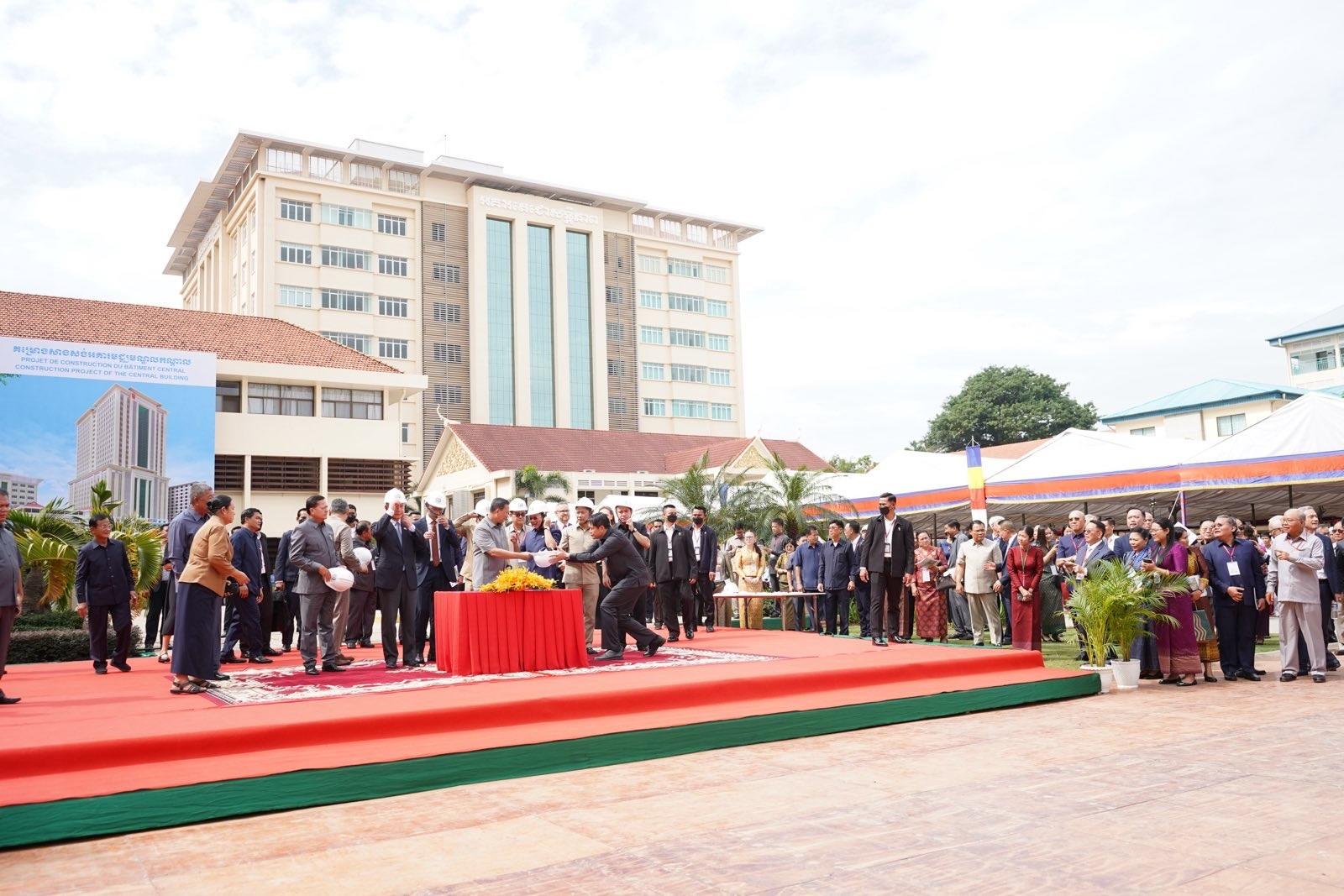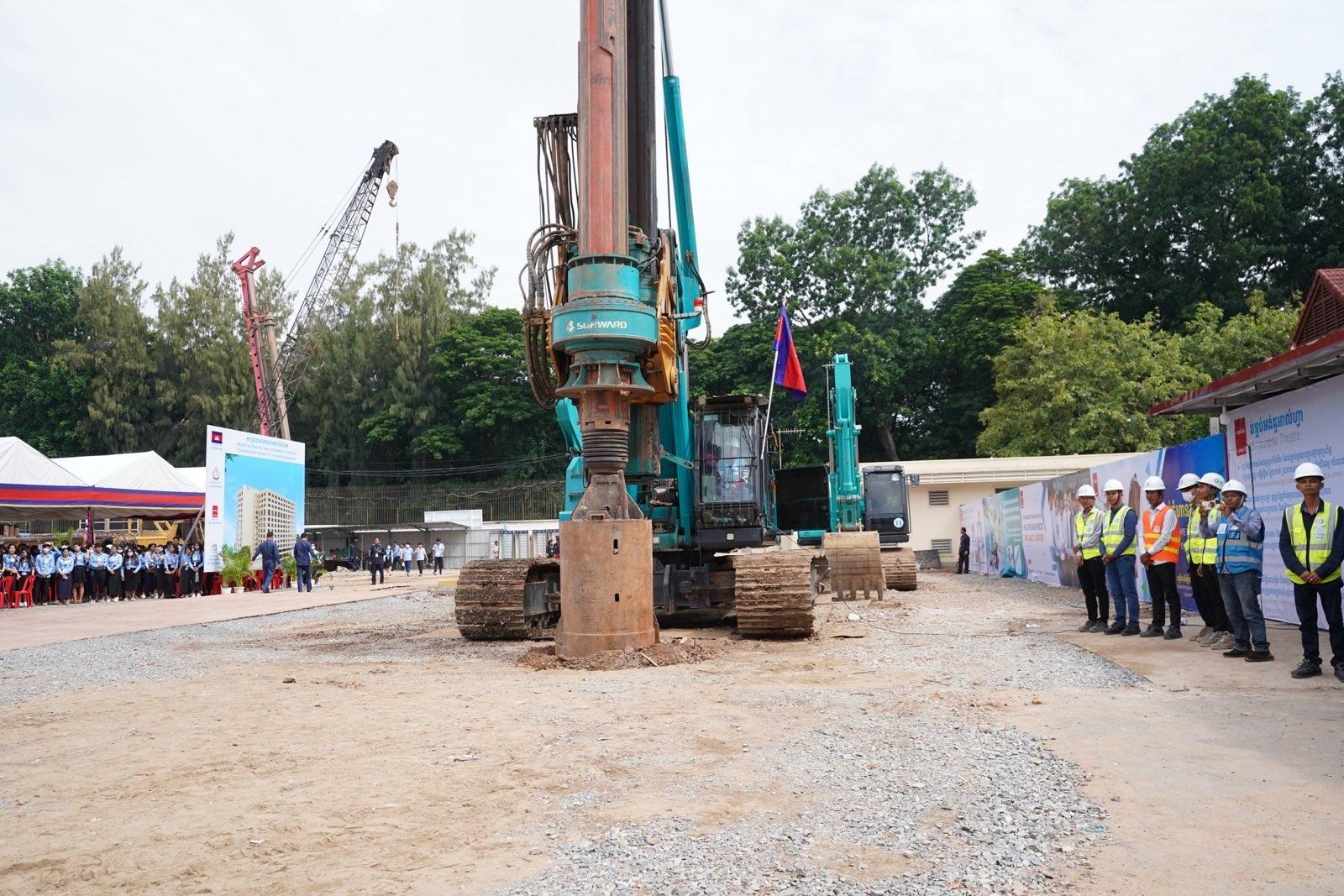Phnom Penh (FN), Sep. 16 – Cambodian Prime Minister Hun Manet made six key recommendations to the Ministry of Health, doctors, and health workers in Cambodia to improve the quality of healthcare services. He also underlined the importance of modernisation to enhance healthcare service delivery in national, provincial, and regional hospitals, with plans for new facilities in the near future.
The premier spoke on Monday (Sep. 16) during a groundbreaking ceremony of Calmette Hospital's new buildings.
On this occasion, Samdech Thipadei outlined the following recommendations, in addition to the key measures set out in the roadmap to achieving global health coverage by 2035:
1. The modernisation and advancement of healthcare services at Calmette Hospital represent a significant breakthrough in Cambodia’s medical technology, allowing for personalised and precision medicine. The Ministry of Health must prioritise this modernisation to improve healthcare delivery at national and provincial hospitals, as well as at regional hospitals planned by the Royal Government.
2. Increase efforts in educating, preventing, and providing healthcare to individuals, families, and communities to promote healthy lifestyles and ensure informed decisions when seeking and using healthcare services. People should be encouraged to seek care at nearby facilities with properly trained and competent healthcare providers.
3. Physicians, technical staff, and health workers in both the public and private sectors should place greater emphasis on preventive and primary care services to avoid the progression of diseases into serious or chronic conditions. This will help reduce costs for patients, families, and the healthcare system. Additionally, maintaining trust through ethical professional behaviour and involving patients and families in treatment decisions is crucial.
4. Strengthen mechanisms for monitoring and improving the quality of services at all levels of healthcare facilities. Regularly assess patient satisfaction and implement quality improvement activities, including clinical management and the use of innovative digital technologies. Quick response and accountability in delivering high-quality healthcare services are essential to maintaining the trust of patients and the public. Feedback mechanisms must be implemented to ensure service improvement.
5. The Ministry of Health and relevant institutions must raise awareness of the social health protection program, ensuring that the target population understands its benefits and knows how to access these services. The program should provide equitable and high-quality healthcare services, regardless of socioeconomic status, religion, or political affiliation, ensuring that patients with equity cards or membership cards can receive appropriate care.
6. Promote inter-disciplinary partnerships and collaborations with the private sector to create supportive environments that link primary healthcare with social assistance services. This will help vulnerable groups access better health and social services, encourage healthy behaviours, support early childhood development, improve education access, prevent domestic violence and substance abuse, promote healthy food and safe workplaces, prevent road accidents, and expand public green spaces.
=FRESH NEWS



